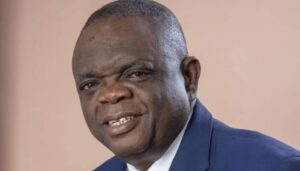
The recovery in the Nigerian private sector gathered strength in March, with output, new orders and employment all increasing to greater degrees than in February. Firms were helped to some extent by softening inflationary pressures, with input costs increasing at the slowest pace since May 2023. The headline figure derived from the survey is the Stanbic IBTC Bank Purchasing Managers’ Index™ (PMI®). Readings above 50.0 signal an improvement in business conditions on the previous month, while readings below 50.0 show a deterioration.
The headline PMI posted 54.3 in March, up from 53.7 in February and above the 50.0 no-change mark for the fourth consecutive month. Moreover, the latest improvement in business conditions in the private sector was solid and the most marked since the start of 2024. Central to the latest strengthening in the health of the private sector was an improving demand climate. This helped lead to a fifth successive monthly expansion of new orders in March. Moreover, the pace of increase was sharp and the fastest in 14 months. In turn, the pace of output growth also quickened at the end of the opening quarter. Here too, the latest rise was the sharpest since January 2024.
Head of Equity Research West Africa at Stanbic IBTC Bank, Muyiwa Oni, noted that softening inflationary pressures are helping to improve domestic demand conditions, in turn, supporting an overall improvement in private sector activity in Nigeria.
“Consequently, private sector activity strengthened for the fourth consecutive month, with the headline PMI settling higher at 54.3 points in March from 53.7 points in February – its highest print since January 2024 (54.5 points). Central to this improvement is an increase in customer requests, which ensured the rate of growth in new orders in March quickened to their fastest pace in 14 months.
“In addition, the employment level increased for the fourth month running in March although some firms reported hiring staff on a contract basis. Meanwhile, the pace of increased input costs for the Nigerian companies moderated sharply in March, with the latest rise being the slowest since May 2023, albeit still marked. In line with this, the pace of output price inflation softened further, easing for the third successive month to the weakest since May 2023,” he stated.
The report also revealed that staff costs continued to rise at a solid pace and companies generally linked the efforts to increase staff pay to helping workers deal with higher living costs.
Private sector activity in Q1:25 was at a much better position compared to the preceding quarter and this is consistent with a likely 3.9% y/y growth in the non-oil sector in Q1:25, signifying a further improvement in business conditions.
For the full year 2025, the report predicts an improvement in the non-oil sector performance, compared to 2024 as the lingering FX stability and improved FX liquidity conditions bode well for the real sector activities, including manufacturing, trade and real estate.
“This, in addition to the anticipated reduction in borrowing costs, should further support the growth of the non-oil sector in 2025. Accordingly, we project the non-oil sector to grow by 3.4% y/y in 2025. Therefore, we still expect the Nigerian economy to grow by 3.5% y/y in real terms in 2025 with the Q1:25 growth print forecasted to settle at 3.7% .” Oni added.




Comments